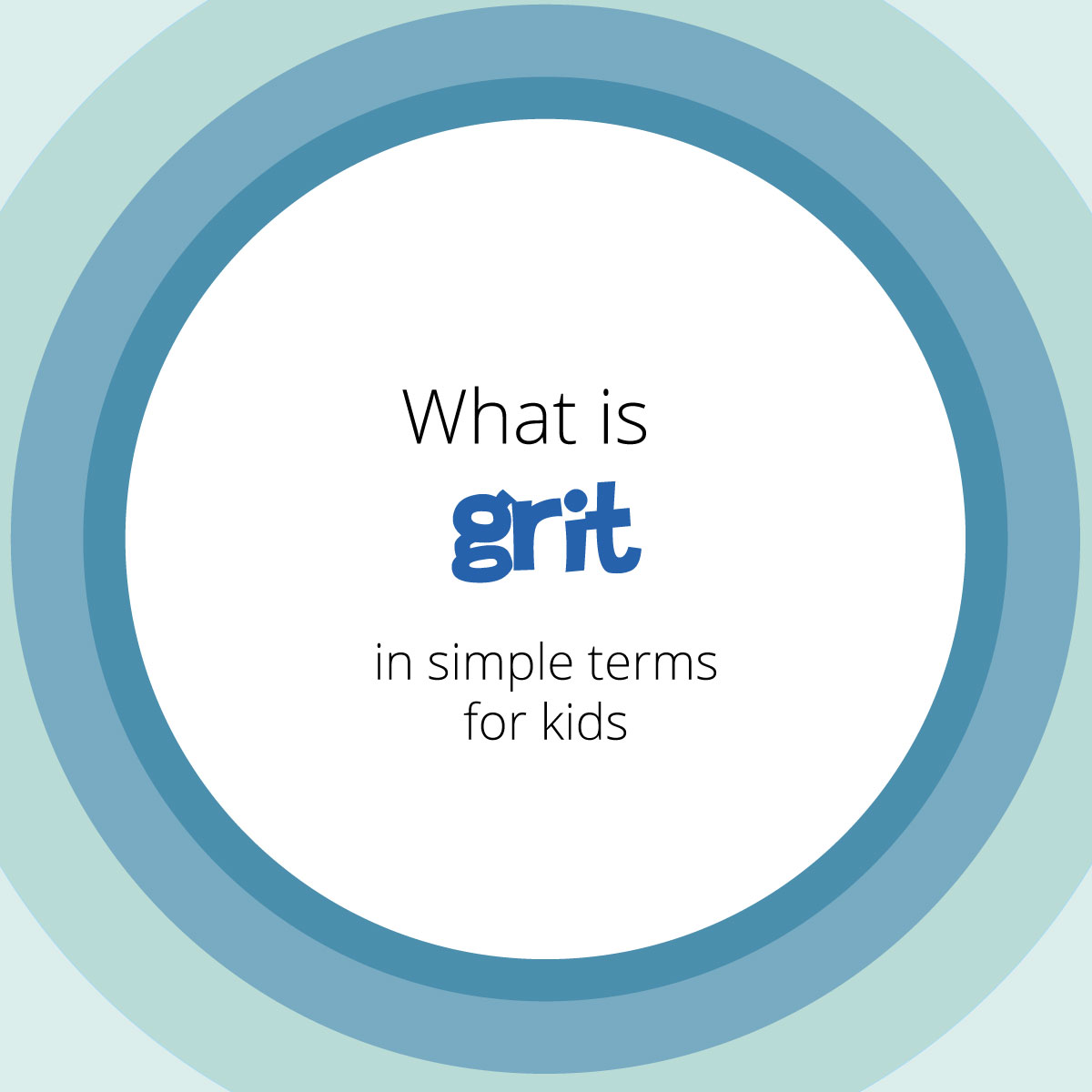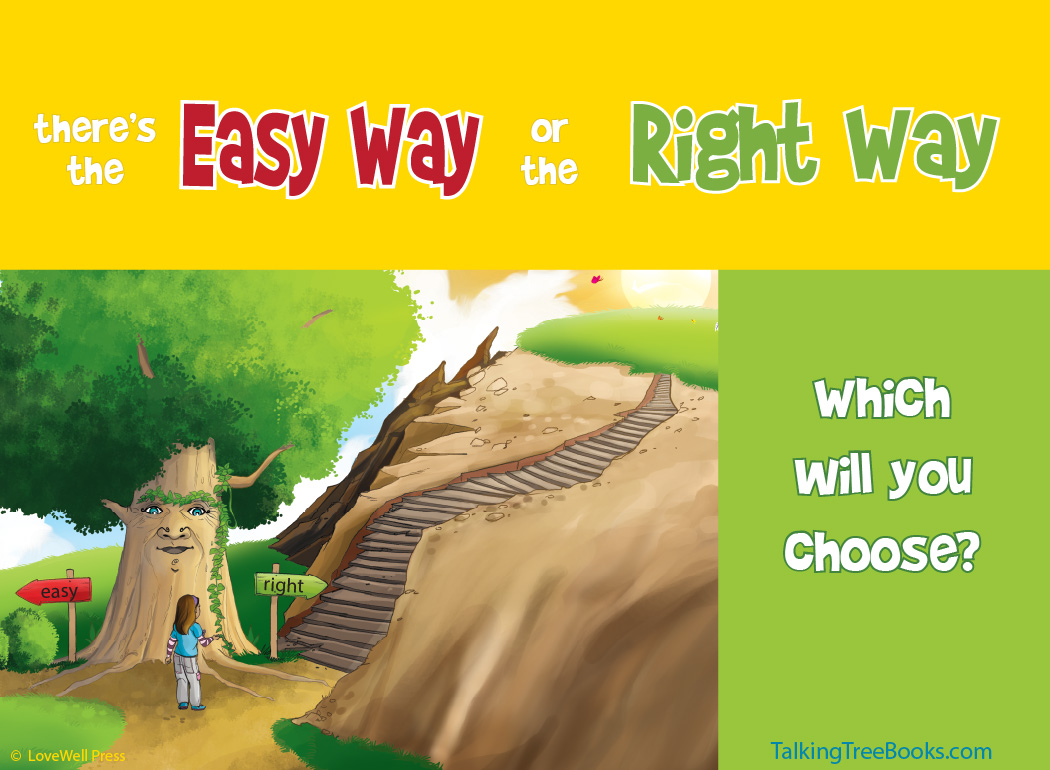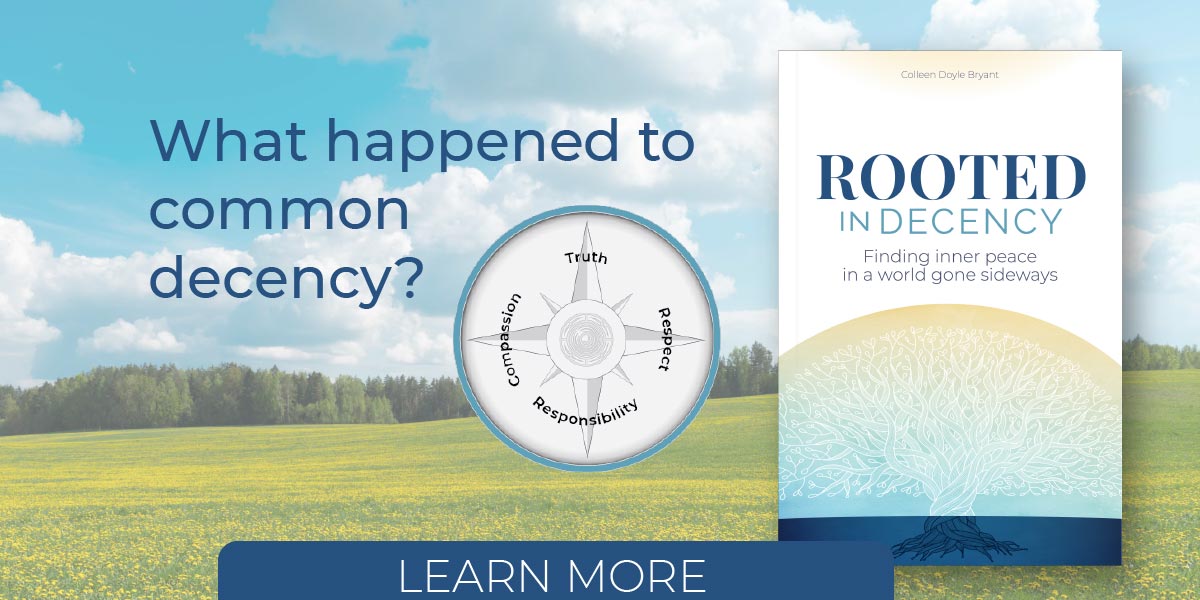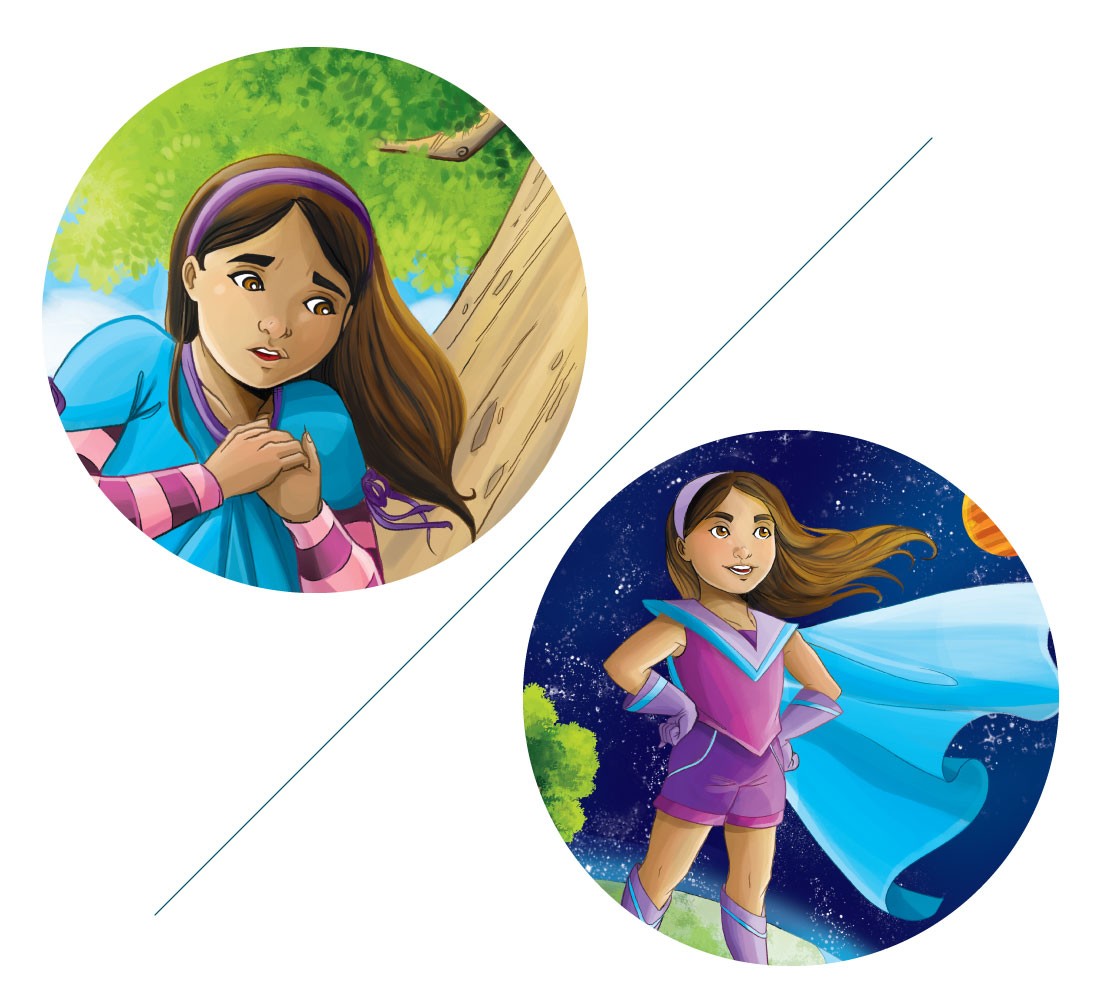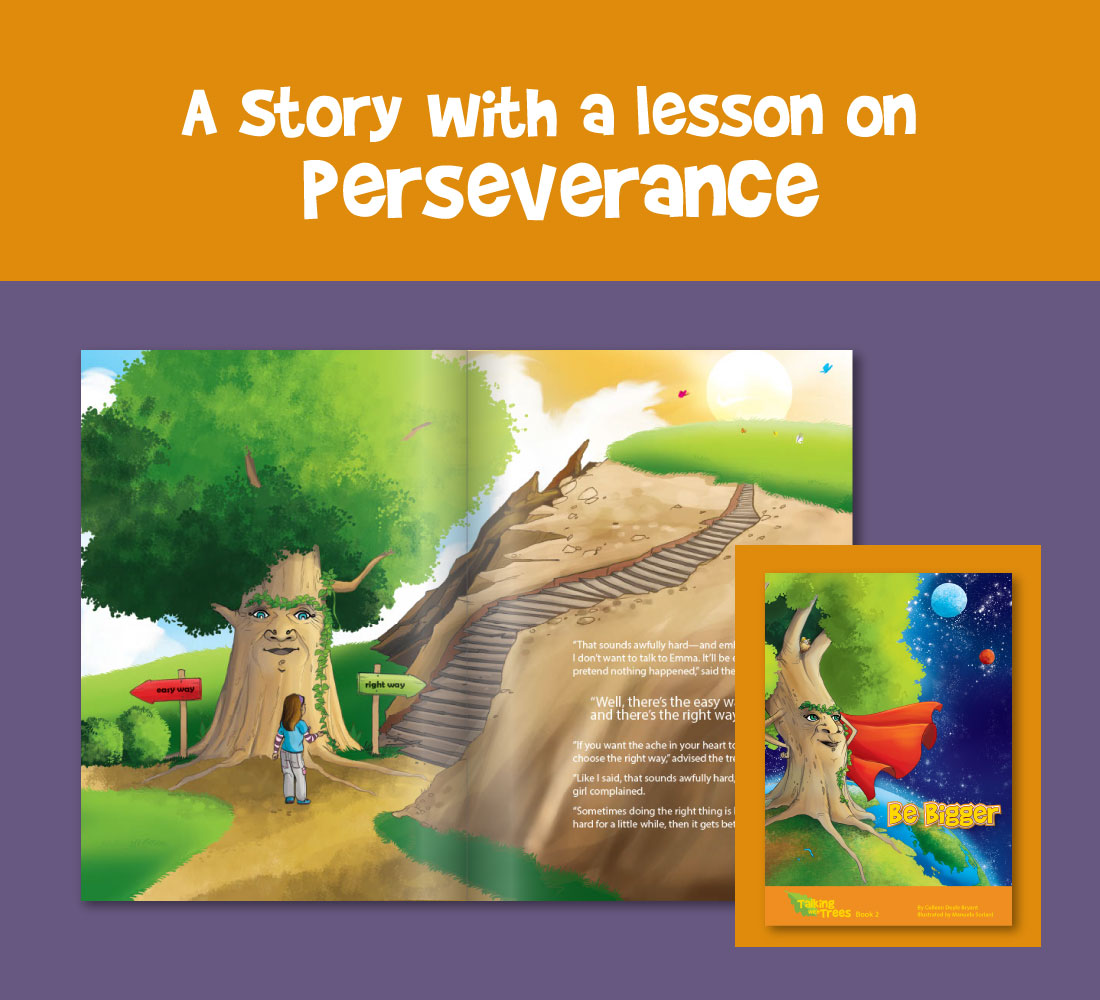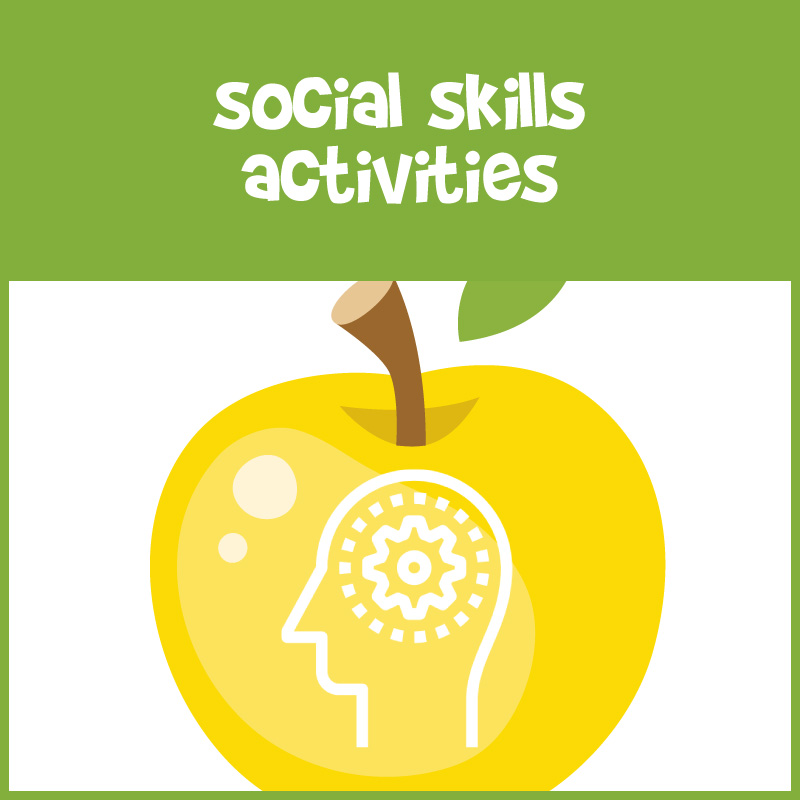What is Grit?
A definition of grit in simple words for children
Grit is the ability to keep working toward a goal even when it's hard.
What is grit? A true definition of grit would say that grit is a personality trait that helps you keep working toward long-term goals despite setbacks or failures. It is similar to perseverance and it requires a growth mindset— two similar character traits that mean you are willing to keep working to get better at something, or to achieve a goal, even though challenges get in your way.
Grit is being able to keep working toward a goal and overcoming obstacles, even when it's hard.
- natural ability by itself isn’t as powerful as grit
- you can get stronger and better at something when you work hard at it
For more about grit, scroll down:
- Why should kids care about grit
- Where did the term grit come from?
- What does grit look like in real life
- Grit does not mean "never quit"
- How kids can develop grit
Why should kids care about grit?
Did you ever notice how sometimes the smartest person isn’t the most successful? Or how the kid with the most natural talent on a team isn’t the star player? That’s because of grit! Studies show that intelligence or natural ability by itself isn’t as powerful as grit. Without practice and effort, natural talent is limited. But with grit, you can develop your ability-- you can get stronger and better at something when you work long and hard at it.
Where did the term "grit" come from?
A researcher named Angela Duckworth introduced the idea of “grit” after her study showed people with high levels of grit were more likely to be successful in life. She defined “Grit” as “passion and perseverance toward very long term goals.” (You can find her famous TED talk about grit here.)
What does grit look like in real life?
Examples of grit are everywhere, because instant success is pretty rare. Successful people throughout history, in music, sports, business, and science have had to use grit to achieve their goals. But having grit doesn’t just matter to famous people who do amazing things. Grit is part of everyday life, and everyday growth. Kids learn to have more grit in lots of ways. See if you can relate to any of these examples of having grit:
- You set a goal to learn all your multiplication tables and had to study hard for a month to learn them.
- Your mom asked you to clean up the garage and it looked really hard and took you a couple weekends to get it done, but you kept at it and cleaned the whole garage.
- You wanted to learn a new dance routine and you had to practice every day for six months but you finally danced it beautifully.
- If you can think of a time you set a goal, and persevered through a challenge to reach the goal, then that was a time you were building your grit.
Grit does NOT mean "never quit"
Some people think that having grit means you never, ever quit. But that's not really accurate because having grit means you start with a goal that is possible to achieve with enough time and effort. For example, if you want to be the first 10 year old to be President of the United States, no amount of grit is realistically going to help you reach your goal. Having grit means you persevere toward a goal that is difficult, but not foolishly impossible. Want to know more? This movie is a great example of a boy who shows grit and perseverance, but eventually adjusts his goal based on the reality of his situation.
How can kids develop grit?
The first step in having more grit is to set a long-term goal about something you really care about and are willing to work hard toward. (Teachers, try this resource on teaching kids to set S.M.A.R.T Goals )
The next step is proving to yourself that you can achieve the goal, even if it’s hard. You’ll need self control and self discipline to keep pushing your limits. You’ll need perseverance to push through when you want to quit. You'll need resilience to bounce back after a failure or setback. You’ll need to be able to wait and not get instant results. But what you’ll gain from all of that, is grit-- and the knowledge that you are able (which is the best source of self esteem there is.) Looking for an idea? Try some of these videos that show kids demonstrating grit.
Colleen Doyle Bryant
Colleen Doyle Bryant is the author of five books and more than 50 learning resources about making good choices for the right reasons. Her Talking with Trees series for elementary students and Truth Be Told Quotes series for teens are used in curricula around the world. Rooted in Decency, Colleen’s most recent release, written for an adult audience, explores how the decline in common decency is affecting wellbeing, and how we can build more trust and cooperation. Learn more at ColleenDoyleBryant.com

